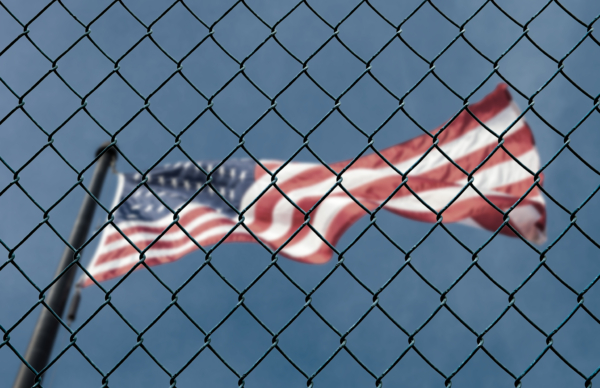DURHAM — A group of pro-democracy plaintiffs have asked a federal court in the Middle
District of North Carolina to block a longstanding racist law that makes it a felony for a North
Carolinian to vote while on parole, probation, or post-release supervision for a felony conviction,
even if they mistakenly believe or are told in error by election workers or their parole officers
that they are eligible to vote.
The law, North Carolina General Statute § 163-275(5) or the “Strict Liability Voting Law,” was
originally enacted in 1877 with the explicit intent to disenfranchise Black voters, and reenacted
in 1899 as part of a broader legislative attempt during the Jim Crow era to suppress the Black
vote. The law’s key features, including the lack of an intent requirement, have remained
unchanged in the decades since.
“It is completely unjust for a prosecutor to bring a felony charge against someone who made an
honest mistake by voting before their sentence was complete due to some unpaid, and often
unknown, court cost,” said Pat McCoy, the Co-Executive Director of Action NC. “We hope
the court will enjoin this law before the next election to ensure thousands of North Carolinians
have their voices heard at the polls.”
“If this law remains in effect, it will continue to impair our efforts to increase political
participation by Black, low-income North Carolinians,” said Melvin Montford, Executive
Director of the North Carolina A. Philip Randolph Institute.
Southern Coalition for Social Justice (SCSJ) and Simpson Thacher & Bartlett LLP, representing
the North Carolina A. Philip Randolph Institute and Action NC, filed a motion for summary
judgment on Thursday asking the Court to declare the law unconstitutional under the Equal
Protection and Due Process Clauses of the Fourteenth Amendment to the United States
Constitution because it is both intentionally discriminatory and unconstitutionally vague.
“The Strict Liability Voting Law is an unconstitutional trap for the unwary,” states the motion.
The law is so vague that the state’s prosecutors have “interpreted and enforced the law
inconsistently” and the State Board of Elections has conceded that “it is absolutely possible that
someone could be confused about [the law].”
The brief highlights how the law has continued to disproportionately impact Black voters:
- While only 22% of North Carolina’s citizens are Black, Black citizens represent 63.6% of all cases investigated for potential violations of the Strict Liability Voting Law between 2015-2022. The NCSBE’s chief investigator acknowledged this disparity was “significant.”
- Similarly, 56.3% of all cases referred for prosecution in 2015-2016 and 2018-2022 involved Black voters. In 2017, Black voters constituted 68% of the 441 cases investigated as a result of the 2016 general election audit, most of which were referred for potential prosecution.
- Black citizens are also overrepresented in the NCSBE’s investigations compared to the overall percentage of Black inmates in state (50%) and federal (51%) prisons in North Carolina. Moreover, only about 40% of individuals on post-release supervision are Black.
“For over 120 years, the voices of North Carolinians who have been convicted of felony
offenses, specifically Black North Carolinians, have been chilled by the selective and arbitrary
enforcement of North Carolina’s strict liability voter prosecution law,” said Mitchell Brown,
Senior Counsel for Voting Rights at SCSJ. “We hope that the Court rules in our favor,
outlawing a racist, vague law that criminalizes mistakes and misunderstandings regarding voter
eligibility by individuals with felony convictions who merely are trying to re-engage in the
political process and perform their civic duty.”
“Virtually every other voting crime in North Carolina requires intent,” explains Simpson
Thacher Litigation Partner Jonathan K. Youngwood. “This strict liability law, which was
enacted for the specific purpose of disenfranchising Black voters, must be struck down.”
###
Southern Coalition for Social Justice, founded in 2007, partners with communities of color
and economically disadvantaged communities in the South to defend and advance their political,
social, and economic rights through the combination of legal advocacy, research, organizing,
and communications. Learn more at southerncoalition.org and follow our work on Twitter,
Facebook, and Instagram.
Simpson Thacher & Bartlett LLP (www.simpsonthacher.com) is one of the world’s leading
international law firms. The Firm was established in 1884 and has more than 1,000 lawyers.
Headquartered in New York with offices in Beijing, Brussels, Hong Kong, Houston, London, Los
Angeles, Palo Alto, São Paulo, Tokyo and Washington, D.C., the Firm provides coordinated
legal advice and transactional capability to clients around the globe.

